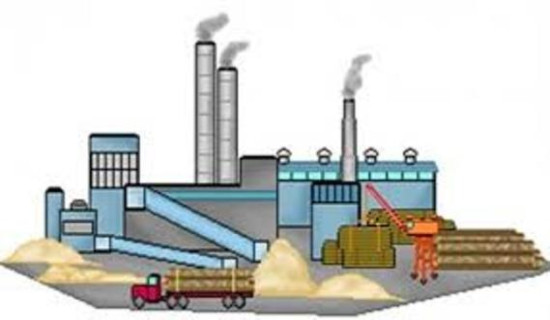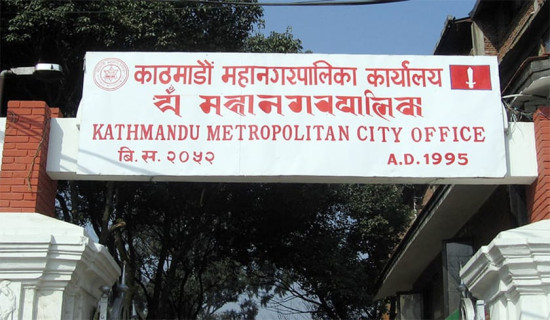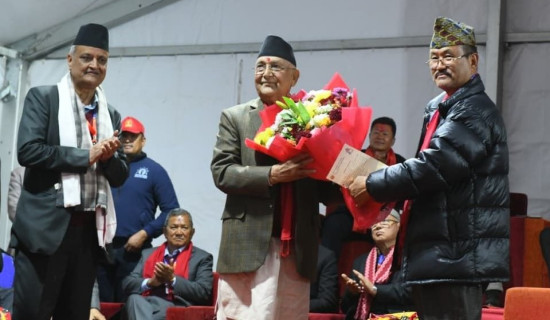- Friday, 19 December 2025
In Pursuit Of Prudent Fiscal Policy
The federal government of Nepal has set a date to table the annual fiscal policy on the 15th of Jestha every year. Now, the Ministry of Finance and line ministries are working on the upcoming fiscal policy for the fiscal year 2023/24. Amid budget preparation and the drafting of fiscal policy, policy influencers and private business organisations are closing monitoring and trying to get access to possible policy changes in taxation and policy instruments for the new fiscal year.
After the change in coalition government, the Council of Ministers has still not got its full shape. However, the government is struggling to manage multifaceted problems encountered during the last six months of political and economic turbulence after the election to the federal parliament. However, the National Planning Commission (NPC) was also just filled. The NPC is the prime responsible authority to frame the fiscal policy and advise the government on the new policy guidelines and budget limit under the long-term and mid-term national planning documents.
Fiscal policy
However, the question on our mind is what type of fiscal policy will be presented by the new government. The last tenure of fiscal policy was not free from criticism amid the preparation of the budget. Some critical cases were floored openly, including CCTV damage cases due to unauthorised access by people during the policy tax drafting. If we look back to the last five fiscal policies, most of them came up with some criticism from the people. Such debated programmes included the constituency development budget allocation directly to MPs, the Prime Minister’s self-employment programme and the president's education improvement programme. The import duties and tax rates amendment and the natural resource export policy were also not free from criticism.
This fiscal policy will be the first policy and also the trailer for the economic departure for the next decade of the 2080s. Therefore, this fiscal policy must bring high hopes to the people for in order to transform the socio-economic structure and achieve the Sustainable Development Goals (SDGs) as well as the 2043 long-term development plan of the nation. The last decade of the 2070s felt moderately bad for Nepal’s economy because of devastating earthquakes, landslides, COVID-19, and political turbulence at different points of time. The average GDP growth for this decade is about 3.95 per cent, and GDP per capita rose from about US$ 804 to US$ 1371 in the last decade. The size of the economy reached US$ 37 billion, up from US$ 21 billion in 2012.
Two factors of production -- capital and labour -- are misbalanced in this decade, but technological adoption somehow improved in service sectors. About 3.5 billion youths migrated abroad to seek a better future and employment opportunities. The lowest economic growth, i.e., -2.4 per cent, was also faced in 2020, along with the world economic crisis due to COVID-19 and disturbances in the supply chain network caused by the Russia-Ukraine war. The growth of revenue is -14.9, which is also a rare case in Nepal. However, the trend of capital expenditure and recurrent expenditure is moving against each other. A very expensive administrative structure has been established, and now the government is under pressure to fulfill its own responsibilities due to a shortage of resources.
Keeping all these issues in mind, the government has to work very seriously in this decade to address the current socio-economic and political problems and lay the foundation for prosperity and a sustainable, quality living standard by maintaining a just society. This would be possible only if the government showed its credibility through upcoming fiscal policy and programmes and executed them rationally under resource pressure. Equally, it is important to bring hopes for prosperity and quality of life to the young people to avoid the current human capital crisis and brain drain problem. The government cannot achieve its budgetary goal and SDGs unless it motivates the labour factor to connect production as well as the economic system to improve productivity.
Therefore, this fiscal policy has to be focused on human capital development and productivity, rational distribution of resources in line with the local economy, research and development works for improving productivity and efficiency, and maximum utilisation of natural resources to boost the local economy through local-level government. No doubt, the upcoming fiscal policy will be an indicator of economic departure for the decade, if not at least for the next five years. The private sector is the most affected and equally benefited by current economic and political turbulence.
Three pillars
Those who have good access to governing and regulatory positions are getting overwhelming benefits through policy influences, and the rest are panicking due to unexpected changes in fiscal policies. The private sector knows that once the policy changes, it will continue until the affected party achieves a significant level of access to influence and change the policy. The three pillars of the economy -- private, public, and cooperative -- are now in trouble. The external sector is under pressure from the balance of payments while the government is facing problems to meet its obligations with its budget deficit.
Likewise, development partners are enforcing their interests irrespective of people's concerns, and civil society seems to be off track. The biggest factor is a political and social hurdle. In such a situation, the upcoming fiscal policy must pin hope on people's expectations. If the government fails to do so, perhaps the 2080s decade will be another waste of time and have a big trade-off cost for Nepal’s economy. Therefore, it is very important to be economically rational and socio-politically just in order to reach the national target in this decade.
(The author is a Ph.D. scholar in economics at the University of International Business and Economics, Beijing, China. sudankumaroli@gmail.com)
















